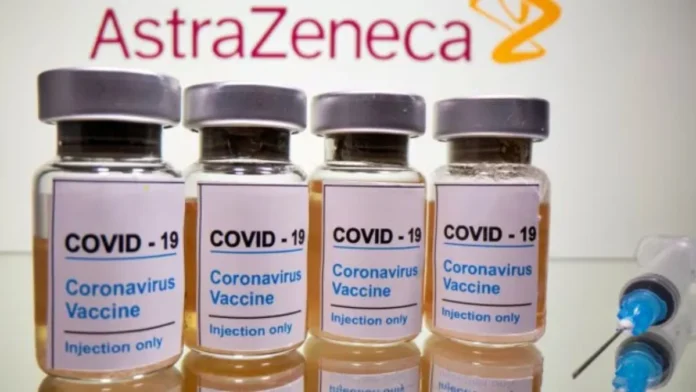In India, where Covishield has been a cornerstone of the national vaccination drive, the controversy has sparked a mix of reactions ranging from skepticism to outright panic
Abhinit Kumar
The global battle against the COVID-19 pandemic has been waged on multiple fronts, from developing vaccines to implementing preventive measures and managing the overwhelming burden on healthcare systems. Among the array of vaccines developed to combat the virus, Covishield, produced by the collaboration between AstraZeneca and the University of Oxford, emerged as a prominent player in the fight against the pandemic. However, recent developments have cast a shadow of doubt over the safety and efficacy of this vaccine, leading to widespread apprehension among recipients and sparking debates across the globe.
The genesis of the Covishield vaccine dates back to the early stages of the pandemic when the world was grappling with the unprecedented challenges posed by the novel coronavirus. As nations raced against time to develop vaccines, Oxford University and AstraZeneca embarked on a collaborative effort to create a viable solution. India, with its robust pharmaceutical industry and scientific expertise, played a pivotal role in this endeavor, contributing significantly to the research, development, and manufacturing process of the Covishield vaccine.
Named ‘Covishield’ by India, the vaccine symbolized hope in the face of adversity, promising to be a potent weapon against the relentless spread of the virus. The Serum Institute of India (SII), the world’s largest vaccine manufacturer by volume, partnered with AstraZeneca to produce Covishield on a massive scale, aiming to meet the global demand for COVID-19 vaccines. The successful development and approval of Covishield marked a significant milestone in the fight against the pandemic, offering a glimmer of hope to billions of people worldwide.
However, amidst the optimism surrounding the rollout of Covishield, concerns began to emerge regarding its safety profile and potential side effects. The controversy intensified when AstraZeneca acknowledged in a British court the possibility of ‘blood clotting’ as a serious side effect of the vaccine. This admission sent shockwaves across the globe, triggering a wave of fear and uncertainty among Covishield recipients and prompting widespread scrutiny of the vaccine’s safety and efficacy.
The revelation in the British court by AstraZeneca underscored the gravity of the situation, raising questions about the thoroughness of the vaccine’s testing and the transparency of the pharmaceutical company in disclosing potential risks. Jamie Scott, a British citizen, became the face of the legal battle against AstraZeneca after suffering irreversible brain damage from thrombosis following vaccination. His case, along with several others, highlighted the real-world implications of vaccine-related adverse events and prompted a reevaluation of Covishield’s safety profile.
The court’s ruling, ordering AstraZeneca to compensate affected individuals and acknowledging the serious health complications associated with the vaccine, marked a significant turning point in the controversy surrounding Covishield. It served as a wake-up call for governments, regulatory agencies, and healthcare professionals worldwide, urging them to reexamine their approach to vaccine safety and risk management.
The implications of the Covishield controversy extend far beyond legal proceedings and monetary compensation. They raise fundamental questions about the balance between public health imperatives and individual rights, the accountability of pharmaceutical companies, and the role of regulatory bodies in ensuring the safety and efficacy of vaccines.
In India, where Covishield has been a cornerstone of the national vaccination drive, the controversy has sparked a mix of reactions ranging from skepticism to outright panic. Despite reassurances from government authorities and healthcare professionals about the vaccine’s safety, many individuals remain apprehensive about receiving Covishield, fearing potential adverse effects.
The challenge for Indian health authorities lies in addressing these concerns effectively, restoring public confidence in Covishield, and ensuring the continued success of the vaccination campaign. Transparent communication, evidence-based decision-making, and proactive monitoring of vaccine-related adverse events are crucial steps in this regard.
While the Covishield controversy has raised valid concerns about vaccine safety, it is essential to maintain perspective and recognize the broader context of the global vaccination effort. Vaccines, including Covishield, have played a vital role in mitigating the impact of the pandemic, saving countless lives, and paving the way for a return to normalcy.
It is imperative to strike a balance between vigilance and pragmatism, acknowledging the potential risks while also appreciating the immense benefits that vaccines offer in combating infectious diseases. As scientists, healthcare professionals, and policymakers continue to navigate the complexities of the COVID-19 pandemic, lessons learned from the Covishield controversy can inform future strategies for vaccine development, regulation, and deployment.
The Covishield controversy serves as a sobering reminder of the challenges inherent in the quest for effective vaccines and the importance of transparency, accountability, and evidence-based decision-making in safeguarding public health. By addressing the concerns raised by the controversy and redoubling efforts to ensure the safety and efficacy of vaccines, we can overcome the current crisis and emerge stronger and more resilient in the face of future health challenges.


